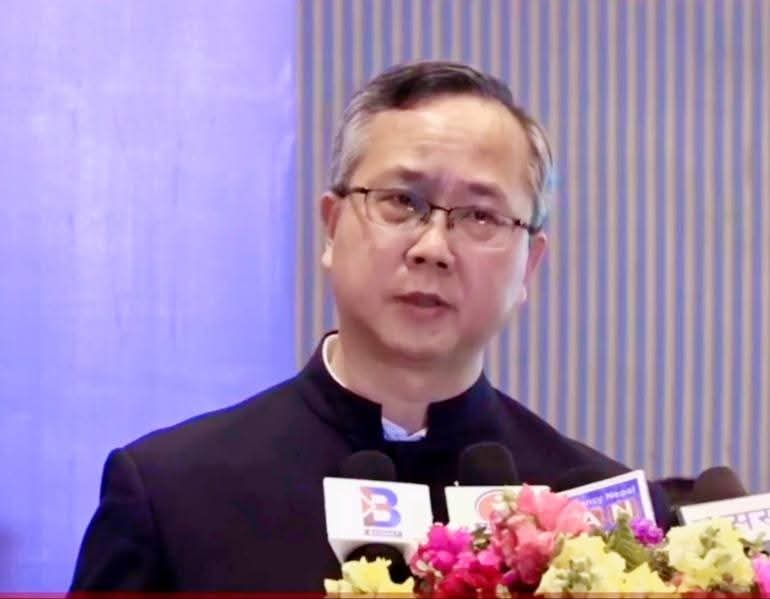Kathmandu, March 15 – Speaker Devraj Ghimire has emphasized the importance of enhancing Nepal's collaboration with China, urging for targeted investments in areas of mutual interest under the Belt and Road Initiative (BRI) to achieve sustainable development. Speaking at the "Kasthamandap Dialogue" organized by the Foundation for Peace, Development, and Socialism in Kathmandu, Ghimire highlighted the need to identify investment opportunities and prioritize new projects to maximize the benefits of the BRI for Nepal.
"As close neighbors and good friends, Nepal takes pride in China's progress and aims to benefit from China's exceptional development through strong economic partnerships," said Ghimire. He acknowledged China's significant role in supporting Nepal's development efforts and expressed expectations for continued cooperation, particularly as Nepal approaches its graduation from the UN's Least Developed Country (LDC) status by 2026.
The dialogue brought together officials, academics, and business leaders from Nepal and China to discuss opportunities and challenges in implementing the BRI in Nepal. Ghimire described the initiative as more than just an infrastructure development program, emphasizing its potential to unlock new avenues for economic growth.
He underscored Nepal's strategic potential to serve as a "transit hub" due to its geographical location and called for increased collaboration on infrastructure development, including roads, railways, energy, and information technology.
Reiterating Nepal's adherence to the "One China Policy," Ghimire praised China's consistent support for Nepal's development and highlighted the long-standing, trust-based relationship between the two countries. "Our policy is guided by the five principles of peaceful coexistence, and we are committed to further deepening our harmonious relationship with China," he stated.
Former Prime Minister and senior leader of the Communist Party of Nepal (Unified Socialist), Jhalanath Khanal, also spoke at the event, highlighting the transformative potential of the BRI. He argued that while some critics describe the BRI as a "debt trap," the initiative has proven to be a boon for most participating countries, including Nepal. "The BRI offers unprecedented opportunities for infrastructure development and connectivity. Nepal must take this opportunity seriously and fully understand its potential benefits," Khanal said.
Chinese Ambassador to Nepal Chen Song reiterated China's commitment to supporting Nepal's development. He highlighted China's advancements in infrastructure, technology, and industrialization, emphasizing that these achievements could inspire and assist Nepal in its development journey.
As discussions continue, Nepal remains optimistic about the opportunities presented by the BRI, focusing on fostering closer ties with China to achieve shared prosperity and sustainable growth.